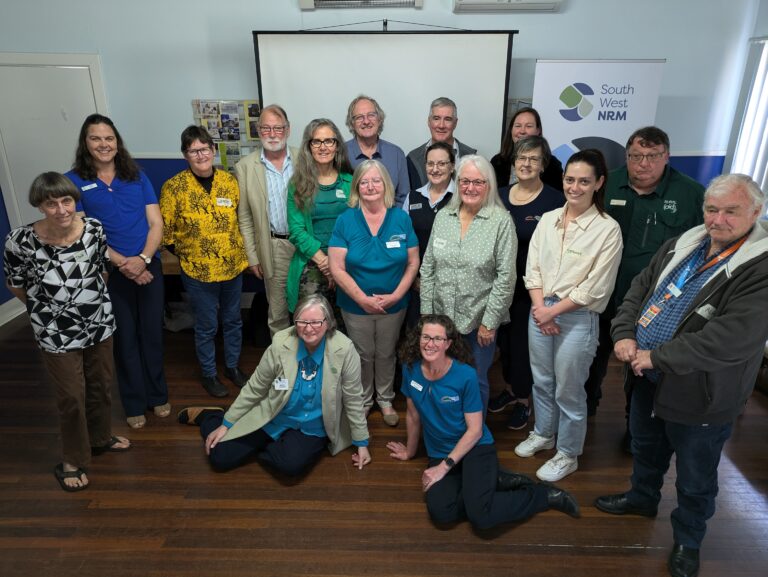
Community members from across the South West region gathered at the CWA Hall in Bridgetown on Friday (25 October) for the final event in our series designed to build social resilience ahead of a predicated increase in drought.
South West NRM’s Project Coordinator Peter Clifton set the day in motion with a recap on workshops undertaken throughout 2024.
Then lively discussion was expertly facilitated by Andrew Huffer with a novelty ‘toolkit’ designed to spark ideas on the elements necessary for a community drought toolkit.
Participants were subsequently guided through the recognised emergency planning stages of Planning; Response; Recovery and Review to identify actions and considerations that would assist communities as the social impacts of drought took hold.
What comes next
Input provided by workshop participants will be collated and analysed to inform creation of a practical action plan or ‘toolkit’ that communities can put to use when identified trigger points signal increasing social pressure associated with drought.
The action plan will be in the form of a booklet which will outline steps as well as share stories and learnings from across the six project workshops.
The design of the resulting action plan means it can be deployed in different communities – each with its own unique needs – and by any group within the community prepared to take ownership of the process.
What we have learned
What we have learned through this project is that best results are achieved when a variety of community sectors come together with a shared mission.
Building community resilience is necessary work! The United Nations’ Intergovernmental Panel on Climate Change (IPCC) continues to identify our South West as a global drying hotspot. We must prepare for the ripple effects of increased heat and lowered rainfall.
Sincere thanks goes out to all of the community members from a variety of sectors who contributed to our series of Community Resilience Network workshops in 2024, which will also now inform our development of the toolkit.
You can read more about achievements of the project so far on our dedicated project page.
Here you will also find our Community Support Services Directory – a resource developed according to input received from the workshops.
This project is supported by FRRR, through funding from the Australian Government’s Future Drought Fund.
